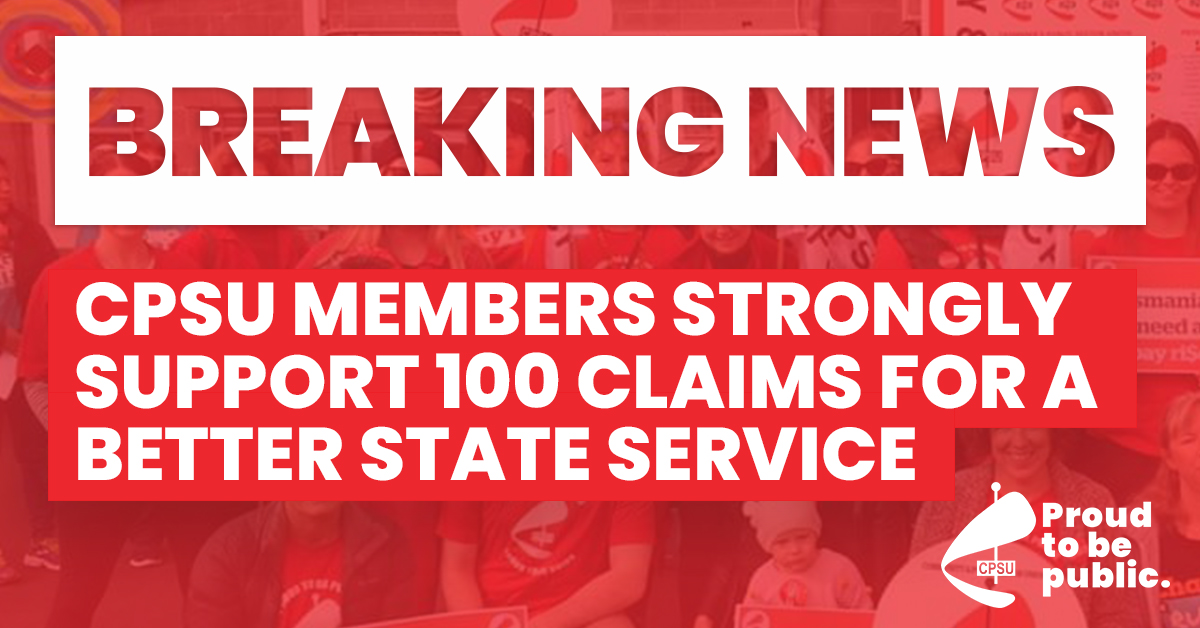
CPSU members have voted overwhelmingly in support of our 100 Claims for a Better State Service.
This claim has been developed over months and involved extensive consultation with members so it’s really exciting that almost 97% of respondents voted to endorse the claim.
We will serve the claim to the Premier this week and expect bargaining to commence soon after.
Bargaining Requires Good Faith.
Bargaining for Agreements that will determine your wages and conditions for the next three years are about to commence, but as the CPSU approaches the negotiating table we wonder if the Rockliff government is committed to good faith bargaining?
Central to good faith bargaining is for all the parties at the bargaining table, government and unions, to have the authority to negotiate. This means they cannot come to the table with pre-determined positions that they are unable to move from, as that means they cannot give proposals genuine consideration – and that is a key principle of good faith bargaining.
When it comes to industrial relations the Rockliff Government exercises a degree of centralised control that would make the Chinese communist party envious. Agencies are not even allowed to discuss changes in industrial arrangements with staff or unions without first getting direction from the Public Sector Industrial Relations Committee (PSIRC).
This wouldn’t be an obstacle if it were reasonable, but PSIRC has proven to be a blockage to innovation and productivity. It is resistant to change and dominated by a Treasury bean counter approach where cost always outranks value. It lacks a real understanding of the challenges faced by workers and managers on the frontline.
PSIRC is chaired by the Head of the State Service and Secretary of Premier and Cabinet, Jenny Gale. She is joined on the committee by the Secretary of Treasury and Finance Tony Ferrall and the Secretary of Justice, Ginna Webster. PSIRC gets its industrial advice from the State Service Management Office.
The last round of bargaining in the Tasmanian State Service took a year to conclude, because for the first 10 months the government representatives had no authority to negotiate. The instructions given to them by PSIRC was to cap wage costs at 2% and regardless of what productivity improvements workers offered, they could not deviate from this position. It wasn’t until union members across the state began rolling strikes that the government appointed a lead negotiator with the authority to bargain, that progress was made.
Has the government learned from that experience?
We don’t know the answer to that one yet. At the first bargaining meeting (for the Allied health Professional Agreement) the CPSU and other unions tabled a bargaining rules document that detailed our expectations regarding good faith bargaining and asked the government representatives to reveal whether they have the authority to negotiate. We await their response.
If they have the authority to negotiate, then bargaining can commence with the aim of reaching a tentative agreement. Each party will then seek approval from their stakeholders to proceed to formalising an agreement.
With the challenges facing our Public Sector to recruit and retain workers in a tight labour market with rising cost of living pressures, PSIRC better be ready to think outside the box.








